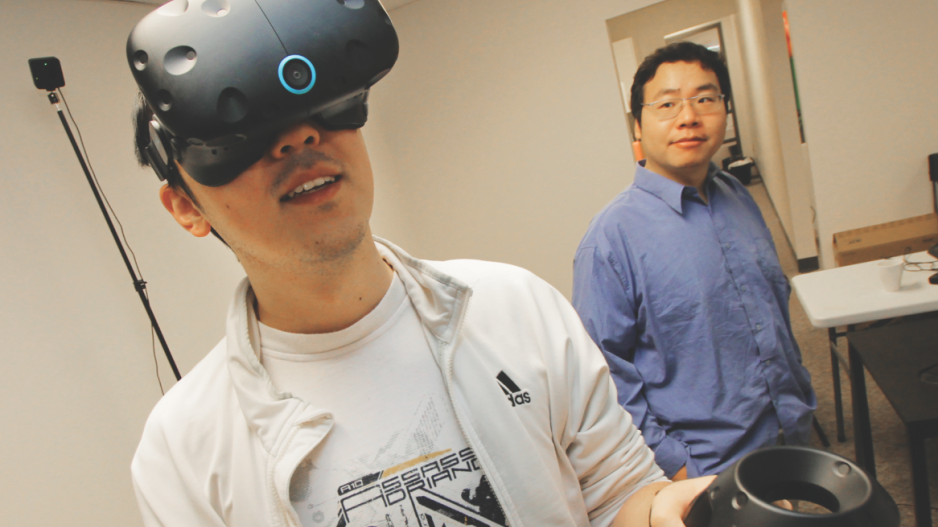Just a five-minute walk from Electronic Arts Canada’s sprawling Burnaby campus sits a rather nondescript office park. But inside one of those plain buildings, Fan Zhang supervises 10 Fire-Point Interactive employees developing entirely different worlds in virtual reality (VR).
The team’s top priority is a new VR game recreating a deep-sea dive.
Zhang, Fire-Point’s mobile games publishing manager, has lived in Vancouver for 16 years. He says the region’s multiculturalism and multi-ethnic demographics make it “easier for a Chinese company to be accepted” into the local marketplace.
Fire-Point, a subsidiary of Beijing-based Match-Light Interactive Entertainment Technology Corp., opened its first North American office two months ago and plans to double its head count to 20 by next year.
And if growth in the VR industry continues, Zhang said he expects to have 30 people working out of the Burnaby office by 2018.
Fire-Point is the first 100% Chinese-backed VR development studio to open an office in B.C., Match-Light vice-president Nie Ying told Business in Vancouver in an email.
Nie, who has lived in Vancouver for about two decades, frequently commutes back and forth between B.C. and Beijing. He’s worked for Match-Light for about five years and pushed the Chinese company to make its North American home on the West Coast.
Meanwhile, Zhang said the access to video game talent made Metro Vancouver an ideal site to launch Match-Light’s first North American office.
“This is a real opportunity, a true collaboration between China and Canada,” said Dennis Chenard, director of industry relations for Vancouver’s Centre for Digital Media (CDM).
CDM – a collaboration between the B.C. Institute of Technology, Emily Carr University of Art and Design, Simon Fraser University and the University of British Columbia – has partnered with Match-Light to introduce a version of its Idea-X program to China. The month-long, Vancouver-based certificate program targets international students interested in the games and digital entertainment industry.
“[Match-Light has] connected with the school because they see there’s talent here they can resource to both staff their development needs but also look to the future to do this training partnership,” Chenard said.
“If they can expand the interest of VR or ability of VR in Asia, then they can have talent both here in B.C. as well as in mainland China.”
Most employees and interns staffing Fire-Point’s Burnaby office came out of CDM’s master’s degree program.
Chenard said the partnership with Match-Light is giving CDM the opportunity to market its master’s program to international students.
Mack Flavelle, founder of Vancouver-based virtual reality consultancy firm Hammer & Tusk, said the Chinese VR market is facing the same challenge as its mobile ecosystem.
“Far more fractured than what we’ve seen in [North America], way more options for hardware, software and distribution. They have way more devices available,” he said.
However, VR adoption rates are “already measurably higher” in China with so-called “VRcades” (Internet cafés to play VR games) popping up in every major city.
Despite wider adoption in China, Flavelle said Chinese investment in North American VR development is viewed as “small fish” compared with its domestic market.
But John Canning, vice-president of new media at the Producers Guild of America, said the amount of Chinese investments being made in North American VR development is “staggering.”
“There is no major VR company that I can think of that hasn’t either been courted by or taken money from a Chinese firm,” he said while presenting at last month’s industry exchange at the Vancouver International Film Festival.
He estimated about US$500 million in foreign capital has poured into North America’s VR sector over the past year alone.
Canning said this stems from China’s ability to leverage production capacity and its desire to “own that next wave” of entertainment.
“VR is still at the cusp of becoming a new marketplace where people are going to be looking for new content. Being a part of that, there’s a lot of potential there,” Chenard said.
@reporton



